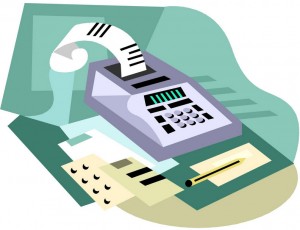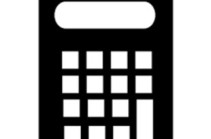The Simplest Budget to Save You Money
 Whether you want a budget in order to be more informed about where your money is going, or you need a budget because you just can’t seem to save any money or get out of debt. Creating a budget is easier than ever these days as technology makes things simple and painless. Below is a bit of background on what to think about when creating a budget.
Whether you want a budget in order to be more informed about where your money is going, or you need a budget because you just can’t seem to save any money or get out of debt. Creating a budget is easier than ever these days as technology makes things simple and painless. Below is a bit of background on what to think about when creating a budget.
Creating a Budget
Theoretically, creating a budget is very simple. All you have to do is document exactly how much money you have coming in every month and exactly how much money you have going out every month. It is best to be as specific as possible in order to get the most out of the budget exercise and drill down as much as possible. Take a look below for some specifics that should be included in your budget:
– Income: Included in your income will be your work wage, pension, income from investments and saving interest, and any other payments you are sure to receive.
– Expenses: utilities, groceries, housing, cleaning and other home services, phone, television, internet, petrol, any additional commute cost, car payments, car insurance, health insurance, home insurance, life insurance, school bills for yourself or children, clothes, childcare, debt repayments, entertainment, and other non-necessities. (Take advantage of grants & benefits where you can)
– Savings: This should include the sum of money that you want to save into a bank account, retirement plan, or investment portfolio.
– Note: It is best to start with a “current state” budget to fully understand what you’re spending and what areas you’d like to address first; then make a second budget of your goals and stick to these. Be sure to include one-time payments somewhere in your budget if they do not have a place among your monthly payments, i.e. gifts for Christmas, birthdays, travel for holidays, etc.
Following a Budget
Creating a budget is the easy part, now it’s time to make cut backs and put your goals into action. Spending less isn’t always as simple as it sounds. Sure you can set your thermostat to save money on utilities and you can ride your bike to work to save money on petrol, but you need a good way to manage the spending that tends to get out of hand—entertainment. You’re not going to cut yourself from any and all fun, so you need a clear way to track and budget your available entertainment fund with each purchase. There are many tried and true ways to manage this spending:
– Withdraw cash in the amount of your entertainment budget and use it every time you go out to eat, go to the pub with friends, or take a weekend trip so you can see the effect each activity has on your cash stash. This is much more effective than using a credit card and once you’re out of money, you can cut yourself off.
– To make sure you’re saving plenty of money, every time you spend money on something non-essential, deposit the same amount of money into your bank account or other investment source.
– Any non-expected income, such as raises or bonuses, should be stowed into the savings or investment account of your choice and not touched for entertainment.
– Budgets should also be reviewed once a year to make sure bills and income are updated.
Day to day life can get away from us, but by creating and using a budget you can manage your hectic finances and stay ahead by saving and investing your extra money.
How to Make This Easy
One of the easiest and quickest ways to setup a truly accurate budget – is to use the tools that most banks or financial institutes provide for free. Most banks have free budgeting tools already attached to all your accounts you have with them. These tools even try (with decent accuracy) to categorise your everyday spending into sections which are easy to see within charts and graphs.
Using this information coupled with bill alerts and automatic payment features can really help create and stick to a budget.
In addition, there are numerous online tools and apps that you can use to assist with creating and managing a budget with a high degree of accuracy. It only takes a couple of minutes to hours to set up a great budget to utilise moving forward. Once complete its literally set and forget outside of the occasional update.




